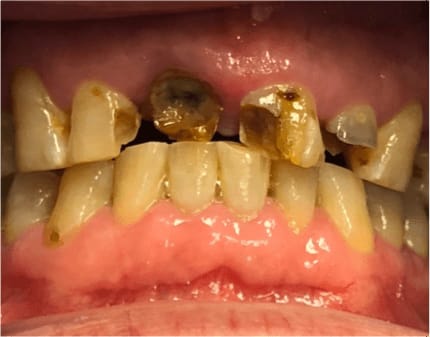
Dental Caries (Tooth Decay): Symptoms, Treatment, Prevention
Dental caries also known as tooth decay, is a common dental condition in our environment. It is the commonest cause of “hole in the tooth” that a lot of people have. It also causes a lot of excruciating pains to those that have them.
If Tooth Decay is left untreated, it can progress to cause pain, repeated infections, and might even lead to tooth removal.
What is dental Caries?
Dental caries is a post eruptive (after a tooth appear in the mouth) destruction of dental hard tissues (enamel, dentin and cementum) by acid produce from bacteria fermentation of carbohydrates (sugar). It is the most common case seen in the dental clinic.
Causes of Dental Caries
Tooth decay arises from the actions of acid producing bacterias in the mouth, which damages the tooth’s surface (made of enamel), there by causing a small hole in a tooth, called a cavity.
Other causes include sipping sugary drinks, snacking and poor teeth cleaning.

Symptoms of Dental Caries
The symptoms depends on the extent of the disease. They include
- hole in the teeth.
- shocking sensation while taking hot or cold drinks.
- pain.
- inability to sleep due to pain.
- swollen cheek.
Prevention of Dental Caries
- Brush twice daily (before breakfast and before you sleep at night).
- Rinse your mouth immediately after eating.
- Regular use of inter-dental cleaning aids.
- Abstain or reduce intake of cariogenic diets(food that can cause dental caries e.g biscuits, sweet e.t.c.).
- Visit a dentist once you notice any dental related symptoms.
Treatment of Dental Caries
You should see your dentist to determine the cause of the tooth decay.
The available treatment options for tooth decay depends on the extent of the disease. Available options include fluoride, fillings and crowns. In advanced cases, a root canal or tooth removal may be required.
Carious lessons involving the pulp requires root canal therapy and crowning while the carious lesions not involving the pulp requires simple filling.
Your dentist would inform you on the best therapy for you.
Feel free to ask any questions you have below.
Leave a reply
Leave a reply